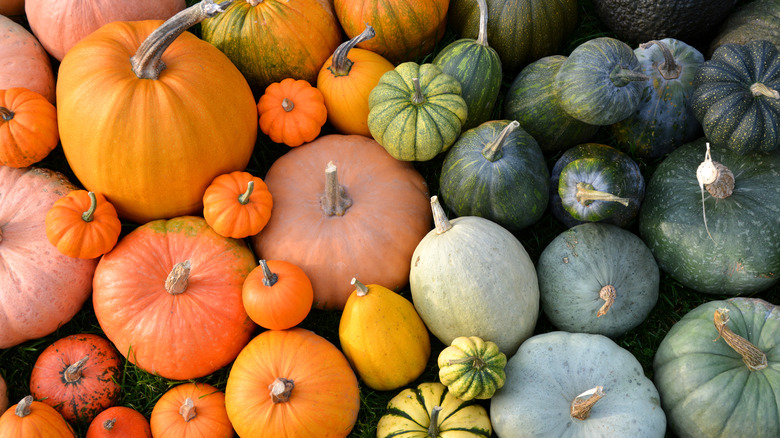Why You Should Stop Refrigerating Winter Squash
The term squash can encompass a wide variety of produce that peak during different times of the year, as referenced by Southern Living, and those seasons typically include summer and winter varieties. Summer squashes are items that grow during the warmer months and are harvested before they're fully mature and have tender, flavorful skin that is meant to be eaten. Summer squashes include zucchini, yellow squash, and pattypan squash, which are the perfect pairing for dishes like pasta.
Winter squashes are also grown during the warmer months, but they're harvested in the fall. These varieties can be larger than their summer counterparts, as well as have a heartier flesh, and as Bon Appétit points out, the skin on most winter squashes isn't tender. Besides these noted differences, another reason they're known as a winter variety comes from the ability of these hardy vegetables to keep throughout the colder months and the fact that they are ideal for hearty soups, as noted by Epicurious.
Low moisture is key
Winter varieties like butternut squash can be a filling addition to cool weather staples like stews and casseroles. Some types are substantial enough to be the star of the meal when they're stuffed, such as acorn or spaghetti squashes. And according to Harvest to Table, there are some winter squash varieties that are best when used for baking or in desserts, like a pumpkin pie. No matter how you use winter squash, there's one thing you need to remember to get the most longevity from these vegetables.
As reported by All Recipes, winter squashes are a type of food that should never be refrigerated. Because of the high humidity and cold temperatures in the fridge, winter squashes can deteriorate rapidly. To get the most longevity out of your winter squash varieties, store them in a cool, dry place that is between 50 and 55 degrees Fahrenheit. If stored correctly, winter squashes can stay good for up to six months.

